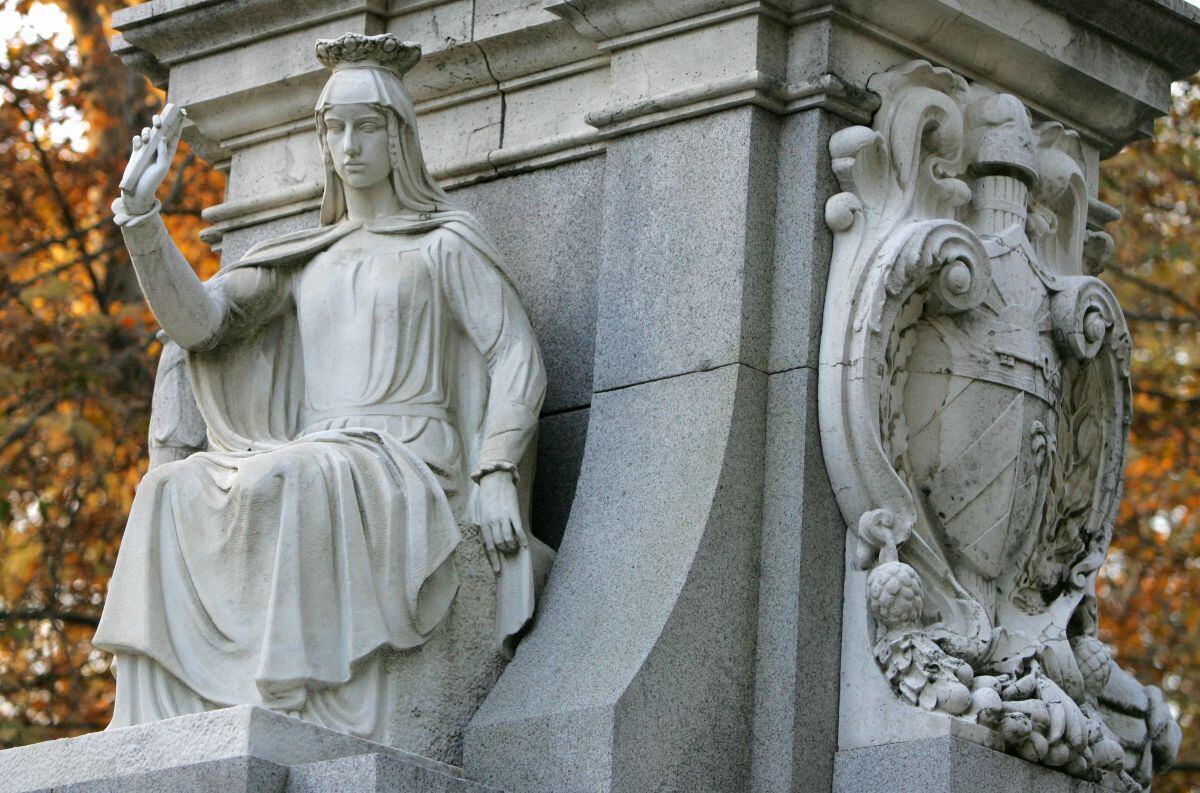
Neither Juana, the daughter of the Catholic Monarchs, was crazy, nor was her mother, Queen Isabel, sold the jewels to finance Columbus’ voyage to Americanor were the English the inventors of the Parliament but rather that it was born in León, all of them legends that the Spanish historians María and Laura Lara Martínez dismantle in an essay.
“Lies of the history of Spain”, published by Espasa, is the title of the book in which these writers and historians, who are also sisters, discover some of the topics that have survived throughout time.
For example, the history of the Spanish queen Isabel la Católica, historians point out, is peppered with lies, such as the rumor that she decided not to change her clothes until the capture of Granada and the expulsion of the Arabs from Spain or the hypothesis that the discovery of America was made thanks to the fact that he sold his jewels.
READ ALSO: School campaign: what are the supplies that could rise more in price?
It is true that he offered them as collateral for a loan to cover the voyage of Columbus, but the notary public and moneylender Luis de Santángel did not allow it and took over a large part of the expenses.
Nor was Juana I, her daughter, crazy, although her contemporaries insisted on presenting her as insane, and she suffered mistreatment from her father, Fernando; her husband, Felipe, and her son, Carlos.
But she found a subterfuge in the presumed madness: when Felipe el Hermoso died, she ordered his corpse to be dug up. “Not out of attachment to her entrails but because in this way she avoided being married off again.” Because there was a tradition in Castile that a widowed queen could not remarry if her husband was unburied.
WAS THE BRITISH THE FIRST PARLIAMENT?
Generally, the historians explain, when one thinks of the origin of parliamentarism, the image of Great Britain comes to mind and, however, the milestone is in the then Spanish kingdom of León in 1188 when Alfonso IX convened a royal council there, forming the precedent of a Cortes, since the meeting was attended by representatives of the nobility and the clergy but also representatives elected by the people.
Within this framework, the Decree of León was drawn up, the oldest proof of the participation of the people in decision-making, while in other European nations this did not occur until the 13th century.
Neither was Felipe IV a stunned king nor was Carlos II bewitched as his nicknames suggested, say the writers.
READ ALSO: One in five shopping center tenants plans to open new stores in 2023
Carlos II, to whom inbreeding wreaked havoc, maintained his sense of dignity and tried to counteract his weakness with kindness, piety and moral uprightness, virtues that, however, were overshadowed by his inclination to idleness and his outbursts of anger. . He is the only Spanish king who died, on November 1, 1700, without seeing the sea.
They also clarify again the origin of what was called “spanish flu” in 1917, a term coined when, faced with the silence of the contending countries in the First World War, where censorship was applied so as not to create alarm, there was so much talk in the Spanish press about the pandemic that the last name remained for centuries. .
In the civil warl, the authors stop at the recruitment outside the Spanish borders to help both sides, as happened for example with the Italians, who were told that they would travel to Spain to participate as extras in a film about Scipio the African and, upon disembarking in Cádiz, they found out that they were going to a real war.
Another of the anecdotes collected in the book is the one that happened when avoid peronthe first lady of Argentina, visited Spain in 1947.
From Barcelona, Evita said goodbye with an address broadcast by Radio Nacional de España and the State honored her with a twenty-one-gun salute. Although she was about to not speak because diplomacy did not understand Franco’s order well. The Spanish dictator had said: “Avoid, let him speak”, but the journalist did not place the comma correctly and thought that they should be prohibited from passing the microphone to him.
Source: EFE
Source: Gestion
Ricardo is a renowned author and journalist, known for his exceptional writing on top-news stories. He currently works as a writer at the 247 News Agency, where he is known for his ability to deliver breaking news and insightful analysis on the most pressing issues of the day.












